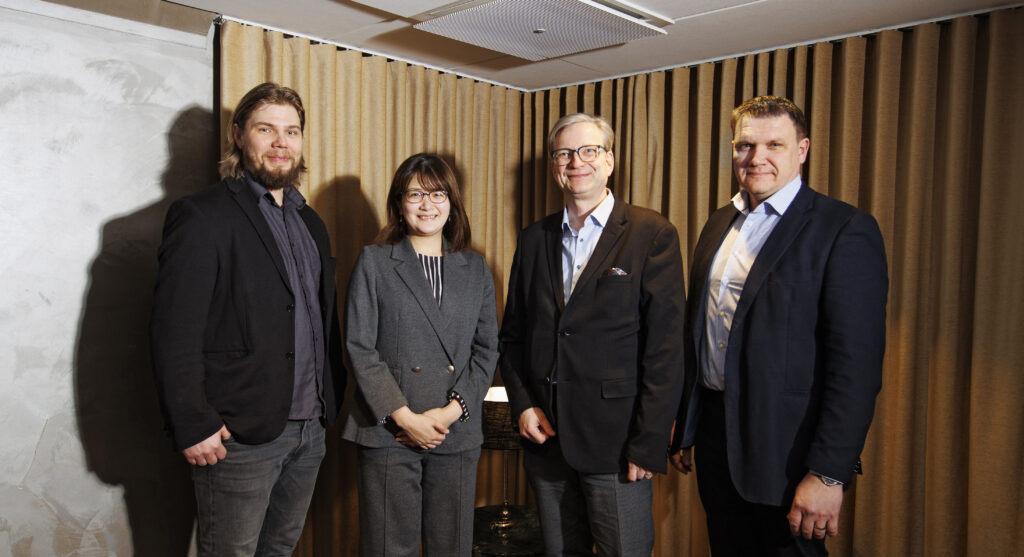
The Central Finland Mobility Foundation (Cefmof) has awarded EUR 1.325 million in funding to the University of Jyväskylä (JYU) to strengthen hydrogen research and advance sustainable mobility and circular economy. The five-year research programme will be supported by an additional EUR 250,000 in co-financing from the University.
The initiative reflects a strategic partnership between JYU and Cefmof, aimed at developing sustainable societies and mobility systems through interdisciplinary research and education. The program will enhance the university’s capacity in hydrogen economy research and help build long-term cooperation between Finnish and Japanese academic and industrial partners.
Japan and Finland have striking parallels in economic, societal, and political outcomes, yet with some distinct features in terms of institutional structures, relative size, and culture. Today as well as in the future, both countries are good examples of how science, education and modern technology can lead to sustainable mobility ecosystems. Sustainable mobility ecosystems, in turn, are essential for sustainable societies. We need research and science and technology, but also societal and cultural understanding to guide these changes.
“Our sincere thanks to the Central Finland Mobility Foundation for this significant funding to strengthen hydrogen research at the University of Jyväskylä. This is a remarkable new initiative that promotes sustainable development and innovation, while also reinforcing collaboration between different actors. Together with our new and innovative research funder Cefmof, we can build a long-term partnership that contributes to a more sustainable future,” says JYU Rector Jari Ojala.

Cefmof is a non-profit foundation established by the City of Jyväskylä, TOYOTA GAZOO Racing World Rally Team, and Toyota Mobility Foundation. Cefmof’s purpose is to, among other things, contribute to achievement of a carbon neutral, sustainable and diverse society, and promote a more mobile society, and to participate in projects that contribute to these goals. Cefmof is committed to supporting research and education, and for this purpose may cooperate with universities to achieve its non-profit purpose. Under this objective, Cefmof funds the program of JYU. Cefmof is a non-profit organisation operating for public benefit.
“One of our goals is to promote and accelerate interdisciplinary research, projects and innovation in hydrogen, hydrogen technology and the hydrogen economy. We also consider international cooperation between Finland and Japan highly important, as the countries share similar societal challenges and offer clear synergies. With this funding, we can strengthen the region’s hydrogen-related research and innovation activities and support the development of Central Finland into a center for hydrogen research. We would like to thank the university for the swift and flexible collaboration,” says Cefmof Executive Director Haruka Arai.
Focus areas: Hydrogen research, circular economy, and mobility ecosystems
The programme will focus on developing novel and energy-efficient hydrogen production methods, particularly by utilizing biomass and industrial side streams. The research will support the creation of a sustainable and carbon-neutral mobility ecosystem by combining expertise in energy, materials science, circular economy, and business innovation.
The initiative includes:
· One tenure-track professor position in hydrogen research (5 years)
· One professor of practice position in circular economy (50–80%, 5 years)
· One postdoctoral/PhD researcher (5 years)
· Three master’s theses on hydrogen and circular economy themes
The work will be carried out within the Faculty of Mathematics and Science and the Jyväskylä University School of Business and Economics.
International collaboration and innovation ecosystems
The research program also seeks to deepen international collaboration, particularly with Japanese universities such as Kyoto University, Osaka University, and Waseda University. The University of Jyväskylä already has active partnerships with several Japanese institutions in student and researcher mobility, doctoral training, and joint research. The active collaboration with Japanese partners opens doors for students to study and do internships in Japan.
Strengthening innovation activity is also one of the key areas of cooperation. Internationally excellent research creates preconditions for new discoveries and breakthroughs that promote innovations, the creation of new companies and new business as well as well-being.
Governance and open science
To ensure transparency and public benefit, JYU will establish a steering committee at Cefmof’s request. While advisory in nature, the committee will support the program’s strategic development. All research results will be made publicly available through open-access platforms and other suitable channels, aligning with Cefmof’s non-profit mission.
The University of Jyväskylä’s multidisciplinary strengths, combined with Cefmof’s vision and commitment, aim to position Central Finland as a hub for hydrogen research and sustainable innovation.
